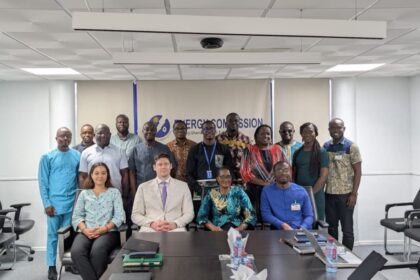In Ghana’s evolving business landscape, Environmental, Social, and Governance (ESG) principles are gaining real significance as companies rethink what responsible growth means. Businesses are beginning to see that profitability and sustainability can go hand in hand. How they treat people, manage resources, and govern their operations determines long-term success. Investors, too, are paying closer attention to how transparent, ethical, and environmentally conscious organizations are. This shift signals a maturing business culture one that understands that Ghana’s development story must be both inclusive and sustainable.
The foundations of ESG lie in centuries-old ethical investment practices. During the 1700s and 1800s, faith-based communities like the Quakers shunned sectors such as tobacco, liquor, and armaments, prioritizing moral alignment over financial gain.
This ethos evolved into socially responsible investing (SRI) by the 1970s, exemplified by the launch of the Pax World Fund in 1971, which offered investors options blending fiscal returns with principled choices.
Parallel to this, the notion of Corporate Social Responsibility (CSR) gained traction. In the 1990s, major firms like Shell started publishing CSR reports to highlight their commitments to stakeholders beyond shareholders, including workers, local populations, and ecological preservation.
A pivotal concept emerged in 1997 when sustainability expert John Elkington introduced the “Triple Bottom Line,” advocating for balanced success across people, planet, and profit metrics. This framework challenged traditional business models, urging a holistic view of impact.
The United Nations’ Role: Establishing Worldwide Norms and Defining ESG
The dawn of the 21st century brought international momentum. The United Nations Global Compact, initiated in 2000, set forth 10 core principles for enterprises, addressing human rights, labour standards, environmental stewardship, and anti-corruption efforts.
This laid the groundwork for broader sustainability integration.
A defining moment arrived in 2004 with the “Who Cares Wins” report, a collaboration between the UN Global Compact and the International Finance Corporation, which first articulated the ESG acronym and emphasized its relevance to long-term value creation. Building on this, the UN Principles for Responsible Investment (PRI) debuted in 2006, offering a voluntary blueprint for investors to weave ESG considerations into decision-making processes.
These initiatives transformed ESG from an abstract idea into a practical tool for global finance.
Frameworks for Assessment and Disclosure
A major hurdle for ESG adoption has been standardization; how to reliably measure intangible elements like ecological footprints or board diversity? Early efforts included the Global Reporting Initiative (GRI), established in 1997 with its initial guidelines released in 2000, providing a structured way for organizations to report sustainability performance.
Subsequent developments enhanced precision. The Sustainability Accounting Standards Board (SASB), founded in 2011, focused on industry-specific metrics to link sustainability to financial materiality.
In 2015, the Financial Stability Board’s Task Force on Climate-related Financial Disclosures (TCFD) introduced recommendations for revealing climate risks and opportunities.
Meanwhile, evaluators like Morgan Stanley Capital International (MSCI) and Sustainalytics developed ESG scoring systems, with MSCI’s methodologies evolving significantly by 2019 to aid mainstream adoption. These tools have made ESG data more actionable, enabling better risk management and opportunity identification.
Aligning with Global Agendas
ESG’s ascent accelerated in 2015 with two landmark UN efforts. The Sustainable Development Goals (SDGs) outlined 17 interconnected objectives and 169 targets to foster equitable, resilient progress by 2030. Concurrently, the Paris Agreement committed nations to limit global warming, compelling industries to transition toward low-emission models.
Together, these have embedded ESG into international policy, urging businesses to align operations with broader societal and climatic imperatives.
Mainstream Integration Amid Growing Debates
By the 2010s, ESG had permeated core financial strategies. Influential voices, such as BlackRock CEO Larry Fink in his 2017 shareholder letter, urged companies to embrace societal roles alongside profitability.
Regulatory bodies followed suit; the European Union’s 2018 Sustainable Finance Action Plan established rules to promote green investments and transparency.
However, rapid growth has invited scrutiny. Concerns over “greenwashing”, where firms exaggerate sustainability claims along with rating inconsistencies and political resistance in certain areas, have sparked debates. Research highlights these issues, stressing the need for robust oversight. In response, the International Sustainability Standards Board (ISSB), announced in 2021, seeks to harmonize global disclosure norms.
As of 2025, ESG assets under management have swelled to over $3 trillion, reflecting sustained investor interest despite headwinds.
The Contemporary Relevance of ESG
Today, ESG is indispensable for resilience. Robust practices enhance capital access, bolster reputations, and mitigate threats from environmental shifts to ethical lapses. For emerging markets like Ghana, ESG represents a gateway to foreign investment, fostering green sectors such as renewable energy and ethical mining, while ensuring local benefits in job creation and community development.
ESG embodies a progression from moral investing and CSR to a unified paradigm reshaping commerce, capital, and governance. It acknowledges that sustained achievement demands harmony among economic, social, and ecological dimensions. For African enterprises, including those in Ghana, adopting ESG transcends regulatory demands; it’s a strategic avenue for innovation, funding attraction, and future-proofing in an interconnected world.
The Case for the ICACE Project
In Ghana, ESG is a pathway to sustainable growth. By adopting these principles, businesses in renewable energy, agriculture, and mining can attract global capital, create jobs, and uplift communities.
Building on the global evolution of ESG, the Integrating Climate Action and ESG principles into Commercial Business Activities (ICACE) project was launched in Ghana to tackle the specific vulnerabilities faced by the private sector due to climate change. Spearheaded by the Climate and Development Knowledge Network (CDKN) in collaboration with the Ghana National Chamber of Commerce and Industry (GNCCI), and supported by the International Development Research Centre (IDRC), the initiative addresses knowledge gaps, builds capacity among SMEs, women-led, and youth-driven enterprises, and promotes sustainable practices to enhance resilience and unlock funding opportunities.
Author: CDKN ICACE Team
Source: www.climatewatchonline.com












